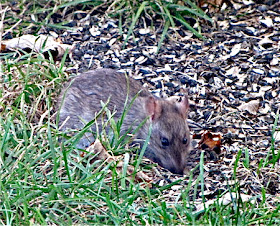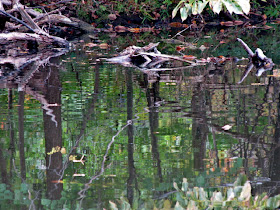
Here is Galway Kinnell's "Blackberry Eating," which I offer as a comparison to Heaney's "Blackberry-Picking" last time:
http://www.poemhunter.com/poem/blackberry-eating/
http://www.poemhunter.com/poem/blackberry-picking-3/
Today I'm going to be wild as a berry and declare that Kinnell's poem engages me more than Heaney's, though I like both. I'm leery of competition in poetry and the other arts, but it's just a reality that we see most things in comparative terms, which is to say competitive terms. The awards that Heaney received are the same awards that other good poets failed to receive, though they might be just as deserving. How many times have I heard: Who is your favorite poet? What is your favorite poem? Whom shall we put in the canon today? If the poetry gods and Main Street alike get to rank poems and poets, why can't I?
The main strength of Kinnell's poem is the central comparison of blackberries to words--sumptuous, wild words, the juicy words of poetry, to be rolled around in the mouth, savored. By implication, there's a similar process in the mind, heart, soul. I think the berry-as-words metaphor is a viable comparison and adds a dimension, a figure, and a surprise that are a bit richer than Heaney's offering, which is musical and delicious, but not very . . . daring or dangerous. Intellectually, the boy's tears about the unfairness of mortality might amount to the only idea in the poem.
After a first line that’s about as pleasantly plain as a
line can be, Kinnell loads four adjectives onto the blackberry wheelbarrow, even though he surely knows we're supposed to limit ourselves to one or none. He scoffs at such laws. He's an outlaw. He'll do what it takes, legal or not.
Moreover, one of those modifiers is a repetition of the
“black” in “blackberries.” This is
exacerbated or enriched, depending on your point of view, by Kinnell’s indulging in the word “blackberry” three times in the first six lines. What an abundance!
What a saturation! It may seem
simplistic, but what better way to make us absorb the power of the
berry than repeating the word, with its rich, slow b sounds.
If we’re to love the blackberry, why add that it’s a
“prickly . . . penalty” and part of a “black art”? Besides, how is it a black art? Probably because it brings sensual pleasure, and we know what religions think of sensuality. These berries
are so brazen, such hussies, that they “fall almost unbidden to my tongue.” These word-berries have a will of their own, and like some words, they feel “peculiar,” or special, calling attention to their own flavor and
uniqueness. Some words are something like a pucker or a squeeze: “strengths or squinched.” Berry-words may be simple, but they are thick: “one-syllabled lumps,”
which are to be squinched open so they will “splurge well.” When does the sensual
pleasure of biting into a berry start to become sexual in connotation?
Heaney’s poem finds plenty of physical beauty and pleasure
in the berries, but aside from his rat, I don’t find anything as intriguing as Kinnell's “black art” that bumps up against the libidinous.
Like so many opinions, this might amount to personal
preference. We can’t usually measure what’s good and bad in poetry as if it
were a math quiz. This time, for me, Kinnell wins the Irish berry war. But notice that both poets rely on rich imagery and the sounds of words to capture the sensuous beauty of the berry. Heaney's "big dark blobs" stand beside Kinnell's "one-syllabled lumps" that "splurge." Who's to say one is better than the other? Also, we could argue that
Heaney’s emphasis on rat-faced mortality has more philosophical heft and danger than
Kinnell’s conceit of berry words that can squinch.
So, reader opinions are especially welcome on this issue. Is
one poem's shotgun filled with more buckshot and chocolate than the other? Why?

http://www.poemhunter.com/poem/blackberry-eating/
http://www.poemhunter.com/poem/blackberry-picking-3/













